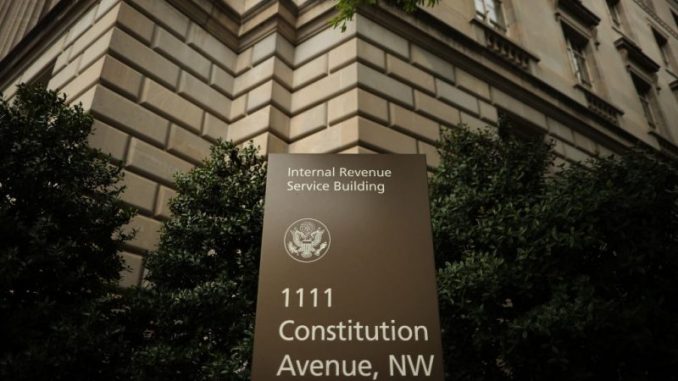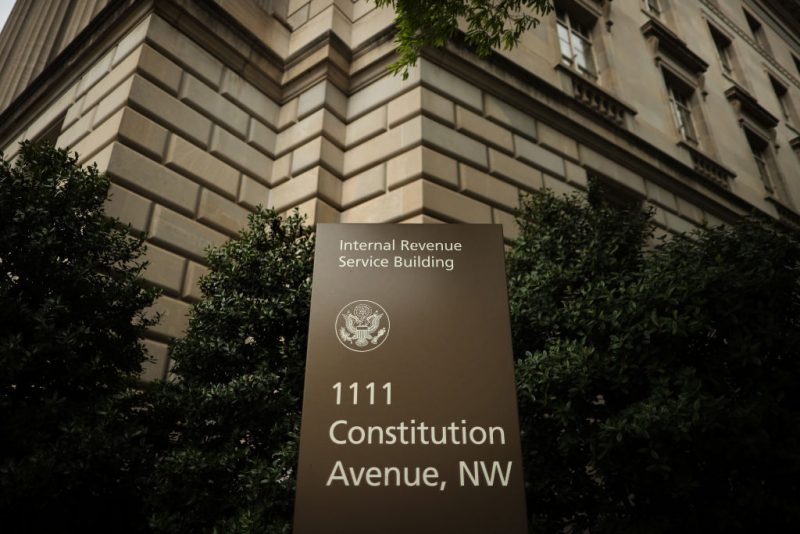

OAN’s Geraldyn Berry
2:50 PM – Friday, August 11, 2023
A recent watchdog report claims that the Internal Revenue Service (IRS) is unable to locate thousands of records that were kept at a facility in Utah, as well as thousands of microfilm cartridges that contain millions of sensitive individual and business tax account records that were supposed to be transferred from a closed agency facility in California.
Advertisement
The Treasury Inspector General for Tax Administration (TIGTA) stated in a report released Thursday that it found significant shortcomings in safeguarding and accounting for millions of tax records that contained sensitive taxpayer information as part of a review of the IRS’ required storage of old tax records in microfilm backup cartridges.
“Our review identified that the IRS is not adhering to its own internal guidelines when sending large volumes of sensitive taxpayer information to and from its Tax Processing Centers,” the watchdog report said, adding, “As a result, the IRS is unable to identify, notify, and/or offer protection to taxpayers when sensitive tax information is lost in the mail and at risk for potential identity theft.”
At the IRS site in Ogden, Utah, the watchdog reported finding seven empty boxes that should have held up to 168 microfilm cartridges, each of which can store up to 2,000 photographic pictures. The IRS staff at the facility was reportedly unable to identify where the cartridges were.
The audit, which was made public on Tuesday, also showed that the Ogden Center’s microfilm cartridges are not “adequately safeguarded to limit access” to the sensitive information they contain and that all three tax processing facilities stored microfilm cartridges over their advised retention dates.
According to reports, the backup cartridges are intended to be disposed of after 75 years for corporate tax data and 30 years for individual tax records.
Additionally, the IRS is unable to locate any cartridges carrying tax records from fiscal year 2010 that were scheduled to be transferred from its Fresno, California, processing facility to its Kansas City processing site before it closed in 2021.
According to the audit, the Kansas City facility also failed to account for more than 4,000 cartridges containing corporate tax account data from fiscal 2018, and 4,500 cartridges containing individual tax account data from fiscal 2019.
“The personal taxpayer and tax information included on these backup cartridges is key information that can be used to commit tax refund fraud and identity theft,” the report said.
Republicans have previously criticized the IRS for treating taxpayer information improperly, such as when it destroyed 30 million paper tax returns in March 2021 during the height of the epidemic, sparking a public uproar from the tax community.
They have also pressed the organization to explain how nonprofit news outlet ProPublica obtained a cache of thousands of tax returns from the country’s wealthiest individuals, which it utilized for an exposé in June 2021.
The TIGTA report also highlighted the IRS’s failure to conduct the required annual inventories of the microfilm cartridges, urging the agency to enhance access restrictions to the tax records. The open shelving storage of cartridges at the Ogden facility is cause for concern, posing further security risks.
In response to the TIGTA findings, IRS Wage and Investment Commissioner Kenneth C. Corbin wrote that the IRS had been compelled to reallocate staff members in charge of the cartridge inventories to higher priorities due to the agency’s ongoing underfunding.
According to Corbin, the government agency is continuing to process shipments of tax records to submission processing sites around the country.
Officials are “confident that as the backlog of non-tax documents is processed, the remaining cartridges will be incorporated.”
Stay informed! Receive breaking news blasts directly to your inbox for free. Subscribe here. https://www.oann.com/alerts

Be the first to comment